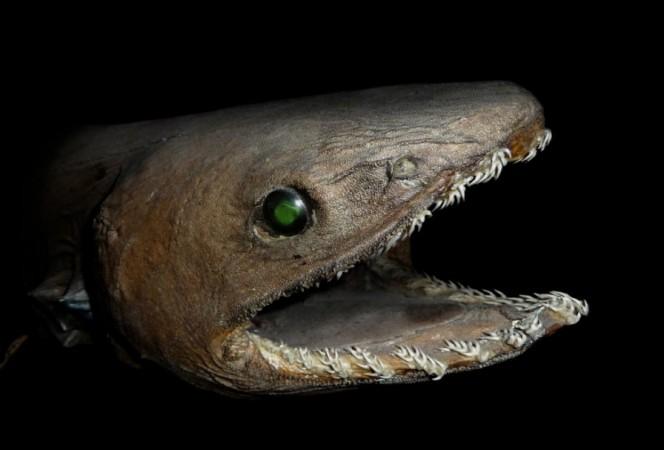
A rare frilled shark was recently found by the Portuguese researchers off the coast of the Algarve, Portugal. The scientists were working on a European Union project to "minimise unwanted catches in commercial fishing" when they came across this "shark from the age of the dinosaurs".
The scientists from the country's Institute for the Sea and Atmosphere called the shark a "living fossil" because it has remained unchanged for 80 million years, making it one of very few species of such antiquity that's still around today.
According to BBC, the scientists said the male fish measured 1.5 metres (5ft) in length and was caught at a depth of 700 metres (2,300 ft) in waters off the resort of Portimao.
The shark has been the same from inside as well as outside since the time of the dinosaurs. Scientists date it back to the Cretaceous Period — when the Tyrannosaurus Rex and Triceratops roamed the planet.
The prehistoric beast has a long, slim, snake-like body but very little is known about it in terms of its "biology or environment" because it's usually found between 390 and 4,200 feet below the surface. It is rarely caught, and there is also very little footage of the shark in its natural habitat.
In fact, it's so rarely seen, despite being around long before humans, that it wasn't even discovered before the 19th century.
Professor Margarida Castro of the University of the Algarve told news website Sic Noticias that the shark has a unique mouth shape and gets its name from the frilled arrangement of its 300 teeth. It allows the deep-sea dweller to trap squid, fish and other sharks in sudden lunges.









!['Had denied Housefull franchise as they wanted me to wear a bikini': Tia Bajpai on turning down bold scripts [Exclusive]](https://data1.ibtimes.co.in/en/full/806605/had-denied-housefull-franchise-they-wanted-me-wear-bikini-tia-bajpai-turning-down-bold.png?w=220&h=138)



